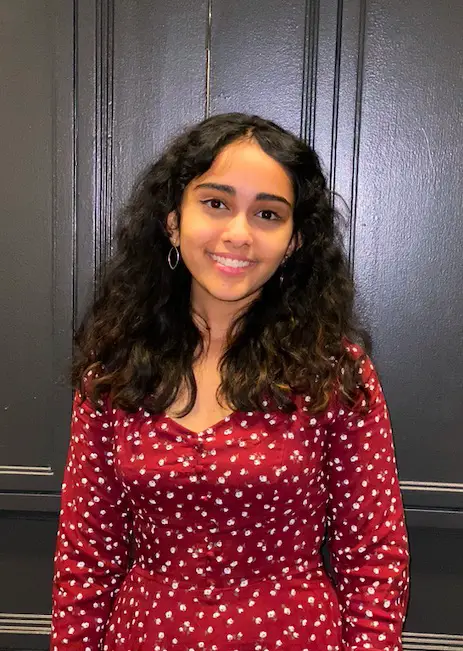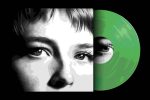In late September, Alessia Cara released her third studio album, “In the Meantime,” an ode to the confusing beauty of the in-between states of life. It makes sense to most why Cara would feel so stuck in the passageways crafted from the success of her singles “Here” and “Scars To Your Beautiful,” as well as her features on “Stay” with Zedd and “1-800-273-8255” with Logic and Khalid. But despite winning a Grammy in 2018, she is not exactly a household name. Her award for best new artist caused quite a bit of backlash, with critics claiming that others (she was up against SZA, Khalid, Lil Uzi Vert and Julia Michaels) deserved it more, especially given that Cara’s first hit single, the aforementioned “Here,” was released two years prior in 2015.
Thus, it is no surprise that Cara struggles with self-doubt and overthinking. “Here” is an introvert’s anthem about wanting to stay alone in a corner during parties. “Scars To Your Beautiful” is a reminder to those with low self-esteem that their pain shows their strength. Cara’s sophomore album was aptly named “The Pains of Growing.”
Growing Pains
“In the Meantime” does not fall short of reveling in these sometimes uncomfortable feelings, but it also takes listeners through the course of accepting and healing them. Take the album’s first song, “Box in the Ocean,” for example. Again, we see Cara grappling with the pains of growing: She starts the bright and flowy reggae-pop song with a striking, “I don’t wanna grow old, I don’t wanna be square / What if I’m a bad role model, what if I’m scared?”
Cara has felt a lot of pressure since 2015; her albums have been known for having inspirational lyrics as well as relatable ones. In the same song, however, she claims that she can take all of these “explosive emotions” and box them away so that they do not hold her back or keep her too occupied. Each of these chaotic thoughts seem to get their own song on the album.
In “Clockwork,” Cara talks about being stubborn like her father and emotional (“guilt[ing] [her]self into pain until there’s nothing left”) like her mother. This functions as a callback to the introductory song, where she worries that she will not be as good of a mother as her own mother. Cara feels stuck, not knowing what to do with all of her time, especially when each day feels the same. And it adds up. Given the state of the world, “In the Meantime” would not have been complete without inspiration from the pandemic, much like many recent hits. In “Fishbowl,” Cara talks about her intrusive thoughts that surfaced as a result of feeling trapped in her home during quarantine, giving her many panic attacks.
Oxymorons In Real Life
One of the recurring themes that I appreciated the most in the album was duality. It is comforting to know that I am not the only one whose mind is constantly switching between two polar-opposite ideals. “In the Meantime” is packed with one-liners that show what it’s like to feel everything at once — to tread the line between what you want and what is good for you, what you feel and what you know.
One of the tracks is literally called “I Miss You, Don’t Call Me,” but I think one of the best conveyors of uncertainty and clashing thoughts is “Middle Ground.” Cara soulfully sings about how her indecisiveness often leaves her idle: “Don’t come near me, yeah, but don’t leave me alone / I got my dog and she’s enough, but it’d be nice to hear a voice that’s not my own.” Cara sharply discusses not knowing what she desires with vivid imagery of her house’s barbed wires and potentially trading them for a picket fence.
Another highlight of the album is “Voice in My Head,” a modern song about escaping negative thoughts that plague her mind. She bluntly puts it: “It’s like there’s two of me,” and she cannot hear herself think. As she starts to heal toward the end of the album, she finds a way to put a muzzle on this voice.
A Breakup Story
Some could argue that “In the Meantime” is a breakup album, and in a way, it is. With tracks like “I Miss You, Don’t Call Me,” “Somebody Else” and “You Let Me Down,” it is clear that Cara went through a bad experience with someone she once loved and called home. But to me, this album is more than recovering from a heartbreak caused by someone else — it is about rebuilding yourself after the heartbreak you put your own self through. It is about not wanting to let go, not knowing where to go next and wanting to take the blame for all that went wrong in the relationship. It is about feeling insecure and scared when trying to find your home.
At its core, “In the Meantime” is an album of dichotomy: wants versus needs, purpose and productivity versus routine and stagnation, head versus heart. This can be felt even on the first listen: Almost every song has an upbeat instrumental paired with more melancholy subject matter. This takes listeners further into the fogginess of Cara’s mind. But as we see in the closer, “Apartment Song,” Cara does not seem to mind. She has found comfort in being unsure about her future as she dances alone in her room in front of the TV, appreciating the color of the sky and finally taking some of the pressure off.
In “Best Days,” Cara decides, “You live and then you die / but the hardest pill to swallow is the meantime,” and questions, “Are the best days just the ones that we survive?” But in “Apartment Song,” Cara has found her home in herself. She has exhaled, learned that the in-the-meantime is what makes us human: It’s the basking in kitchen lights, crying and moving on, laying down and taking a nap — the mundane. And while it is fleeting, it always seems to find its way back to us if only we allow the blissful chaos inside us to be.

















